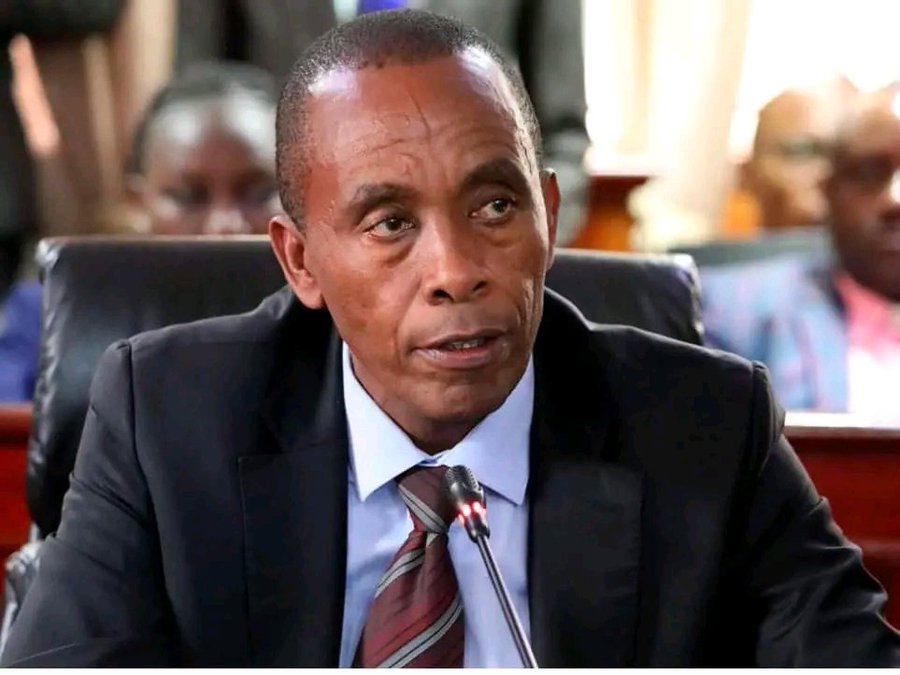The war against corruption has escalated sharply after the Director of Public Prosecutions (DPP) ordered charges against sitting and former governors accused of running ghost tenders and family cartels.
The DPP’s directive follows explosive investigations by the Ethics and Anti-Corruption Commission (EACC), which uncovered multi-million and billion-shilling scams stretching across counties.
What emerges is a shocking portrait of governors who allegedly turned county offices into private businesses, channeling funds through relatives, cronies, and shell companies. The crackdown now threatens to reshape Kenya’s fight against graft.

Ghost Tenders and Family Cartels: DPP Targets Governors in Multi-Billion Scandal
At the center of this storm is Bomet Governor Hillary Barchok. According to the DPP, EACC probes revealed that he pocketed KSh 2.75 million from companies doing business with Bomet County between 2019 and 2025. He now faces charges of conflict of interest and unlawful acquisition of public property.
Barchok is also accused of colluding with Evans Kipkoech Korir, Director of Chemasus Construction Ltd, to acquire proceeds of crime under the Proceeds of Crime and Anti-Money Laundering Act. The alleged theft, though smaller compared to other governors, is symbolic of the rot in county procurement.
In Bungoma, the scandal explodes further. Former Governor Wycliffe Wangamati is accused of orchestrating the looting of KSh 70.2 million through a web of county officials, family members, and private contractors.
Senior officials like Maurice Waiile Marango, Alex Musonye Odanga, and Michael Simiyu Wangamati allegedly played central roles. But investigators say the cartel ran deeper, implicating multiple directors, associates, and even members of the Wangamati family. Notably, Webuye MP Daniel Wanyama Sitati also appears in the inquiry files.
The DPP’s findings portray Bungoma’s coffers as a feeding trough for a political family and its allies, using ghost tenders and dubious construction firms to drain public money.
Ghost Tenders Fuel a Billion Shilling Scandal in Kiambu
In Kiambu, the spotlight shines on Governor Kimani Wamatangi. The DPP says that between 2017 and 2022, while serving as Senator and chair of the Senate Roads and Transportation Committee, Wamatangi used companies owned by his wife, children, and sister to corner road contracts worth KSh 1.27 billion.
Investigators allege Lub Plus Oil & Energy alone pocketed over KSh 615 million. EACC claims Wamatangi not only engineered the deals but also maintained direct control of the accounts, making him the ultimate beneficiary.
The revelations raise grave concerns about how oversight committees in the Senate may have been used to shield private enrichment schemes. If proven, this case exposes how political influence can turn public contracts into family fortunes.
Marsabit Governor and Relatives Named in KSh 728 Million Looting
In Marsabit, Governor Mohamed Mohamud Ali faces a similar web of accusations. Between 2017 and 2024, his family and close allies allegedly won 104 tenders worth KSh 728 million.
EACC reports that companies such as Ororo Company, Damme Investments, and Burqa Ventures—all linked to Ali’s wives, relatives, and Senator Mohamed Chute—were awarded lucrative contracts in roads, medical supplies, and water projects.
Payments to these firms allegedly found their way into the governor’s personal accounts, a move investigators say was designed to mask theft through legitimate procurement. The scope of the racket shows how governors allegedly repurposed counties into pipelines for private enrichment.
Ghost Tenders Expose Devolution’s Dark Side
The DPP insists these prosecutions are not isolated. Instead, they represent a broader effort to dismantle entrenched county cartels. The office has hinted at more charges against county officials and contractors linked to procurement fraud.
From Bomet to Bungoma, Kiambu to Marsabit, the pattern is consistent—ghost tenders, inflated contracts, shell firms, and family enrichment. Counties that were supposed to bring services closer to the people have instead become cash machines for political dynasties.
If the DPP succeeds, this will be the most sweeping anti-graft offensive against governors since devolution began. But the question remains: will justice be served, or will the cartels once again find a way to escape accountability?











































